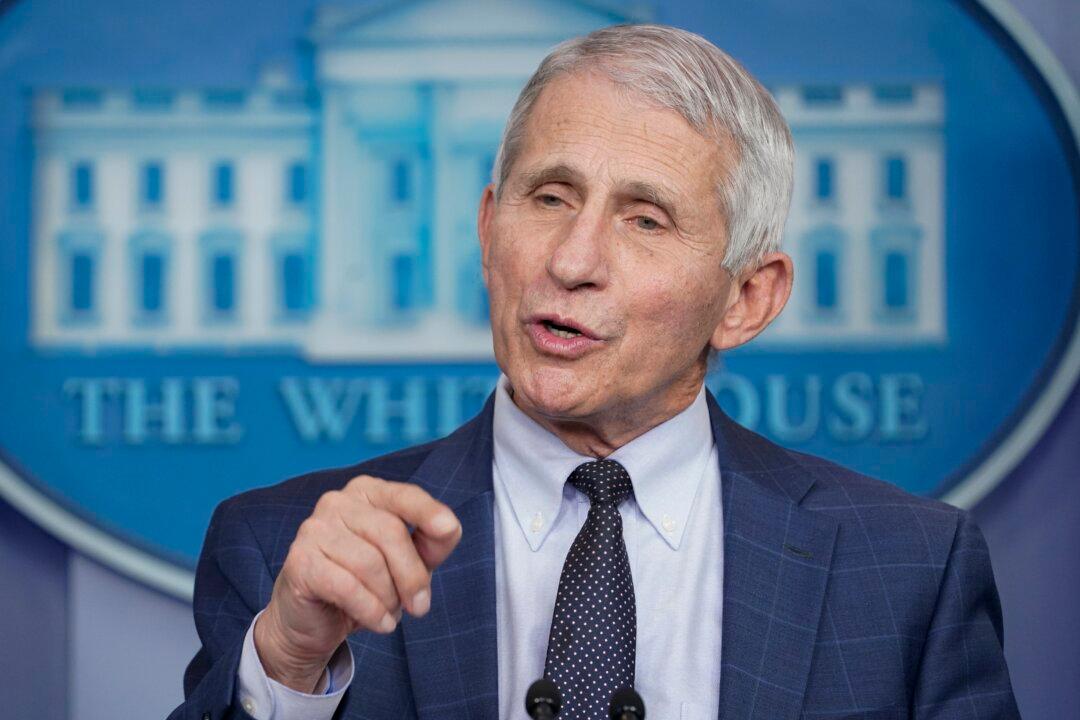Dr. Anthony Fauci knew that researchers at a U.S.-funded laboratory in China were conducting risky experiments, according to a newly disclosed email.
Dr. Fauci, at the time the head of the U.S. National Institute of Allergy and Infectious Diseases, joined a call on Feb. 1, 2020, with scientists around the world to discuss the possibility that COVID-19 was engineered or otherwise came from the lab in Wuhan, the city where the first COVID-19 cases were identified.





